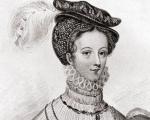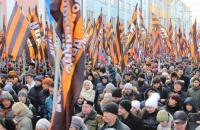29.12.2021
Representative of the “Viennese classical school. The last years of Beethoven's life
Ludwig van Beethoven (1770-1827), a German composer and pianist who vividly represented the "classical Viennese school", is one of the world's most performed composers. He wrote compositions for choirs, music for drama performances and operas. Concerts and sonatas for violin, cello and piano are considered the most significant of his works.
Childhood
On December 16, 1770, a boy was born in Bonn, who was given the name Ludwig. The next day he was christened in the Catholic Church of St. Remigius.
The boy's dad, Johann Beethoven, was a singer, sang in the court chapel as a tenor. Ludwig's mother, Mary Magdalene (maiden name Keverich), was the daughter of a cook, her father served at the court in Koblenz. Johann and Maria were married in 1767, during the marriage they had seven children, but only three survived, Ludwig was the eldest child in the family.
His paternal grandfather was also called Ludwig; in addition to German, Flemish blood flowed in his veins. He was also a singer, served in the same chapel, where his son Johann was later taken. He finished his musical career as a conductor and was a very respected person.
Ludwig Beethoven's childhood years were spent in poverty, as his father drank heavily and spent almost all his salary on booze and girls. At the same time, he wanted to raise a second Mozart out of his son, and he taught him to play the violin, piano and harpsichord.
But the miracle child did not work out of Ludwig, he did not master the violin confidently, and on the piano he did not so much master the technique of performance as improvised.
His father gave Ludwig to study with his friends and colleagues, one studied the violin with the boy, the other the organ.
But he was really taught to play musical instruments by the organist and composer Christian Nefe, who arrived in Bonn in 1780. He immediately managed to discern talent in the child.
Youth
When my grandfather died, the family became very difficult financially. Ludwig had to stop studying at school and go to work. Already at the age of 12, he helped the court organist. And he continued his studies on his own, learned Latin, Italian and French, read a lot, especially loved Homer and Plutarch, Goethe, Schiller and Shakespeare.
At the same time, the first written musical works of Beethoven also fell. While he did not publish anything, he later revised many of his youthful writings.
In 1787, Ludwig had the opportunity to visit Vienna, the musical capital of Europe. There, Mozart himself listened to his improvisations, who predicted a great future for the guy.
Unfortunately, the young man was forced to return home, his mother was near death, and two younger brothers and a dissolute father remained on him.

When his mother died, Beethoven lived and worked in Bonn for another five years. Enlightened urban families drew attention to the gifted young man, and thanks to his ardent nature, greed for music, Beethoven quickly became a part of any musical gatherings.
The Breuning family especially helped the talented young composer, they made him continue his studies in Vienna.
And in 1792 Ludwig left for Vienna, where he remained until the end of his life.
Vein
Arriving in Vienna, Ludwig began to look for a teacher. Unfortunately, Mozart had died the year before. At first, Beethoven studied with Haydn, then his mentor left for England and transferred the student to Albrechtsberger. Later, Ludwig began to study with Antonio Salieri.
Beethoven quickly found friends-patrons in Vienna, Prince Likhnovsky introduced the young composer to a circle where both professional and titled amateur musicians gathered. Ludwig played to amaze the audience ─ and gradually the fame of a virtuoso pianist came to him.
Ludwig combined a kind disposition with a very stern character. One day while he was playing the piano, someone started talking to a neighbor. Beethoven stopped playing, saying: “And for such pigs I don’t play!” And no amount of persuasion helped bring him back to the instrument.

What else he differed from the young people of that time was his careless appearance. He always walked around unkempt and clumsily dressed.
But neither his impudent character, nor external data prevented him from creating unique works:
- the oratorio Christ on the Mount of Olives;
- about twenty sonatas and three piano concertos;
- The First and Second Symphonies;
- eight violin sonatas;
- ballet "Creations of Prometheus".
His works were widely published and were a huge success.
Deafness, solitude, death
In 1796, Ludwig developed an inflammation of the inner ear, and his hearing began to disappear. In despair, he retired to the small provincial town of Heiligenstadt, he even had thoughts of suicide. However, realizing how much more he could have done, Ludwig drove this nonsense away from himself. During this period, he began work on the Third Symphony, which was later named Heroic, as it was written by a deaf composer.

Due to deafness, Ludwig rarely left the house, he became gloomy and unsociable. But it was during this period that his best works were created.
Beethoven was quite amorous, but never received reciprocity in return. He dedicated his famous Moonlight Sonata to the young Countess Juliet Guicciardi. He really liked this girl, and he even thought to propose to her, but stopped in time, deciding that a deaf composer was not the most suitable part for a young beauty.
The last years of his life, Beethoven wrote much less often. After the death of his brother, he took care of his nephew, tried in every possible way to give him a decent education, but the young man was only interested in billiards and cards. Ludwig was very worried about this.
Liver problems were added to deafness and nervous experiences. The composer's health began to deteriorate sharply. In mid-March 1827, Ludwig's lungs became inflamed. On March 26, the composer passed away. He was buried in the Central Vienna cemetery, 20 thousand people followed the coffin, and his favorite "Requiem" sounded.
In this issue we will talk about the last years of the life of the great Beethoven.
In the previous issue, we talked about the composer's life, marred by a meager financial situation and successive failures in relationships with the fair sex. But these details, as well as the character, far from the most beautiful character of the composer, did not prevent Ludwig from writing his beautiful music.
Today, concluding our short excursion through the biography of Beethoven, we will talk about the last twelve (1815-1827) years of his life.
Beethoven's family problems
It cannot be said that Beethoven once got along well with his brothers, especially with, who by that time was already a well-to-do pharmacist who supplied medicines to the army.
In 1812, after meeting with Goethe, the composer went to the city of Linz to visit Johann. True, apparently, Ludwig on this trip was prompted by a selfish idea, namely, to upset the engagement between Johann and one of his collaborators, Theresa Obermeier, which the composer simply could not stand. True, the result was not in favor of Ludwig, because the younger brother did not listen to him.
A few years earlier, back in 1806, Ludwig prevented the marriage of his other brother, and also his secretary, Kaspar, and the attempt was equally unsuccessful. But all these attempts by the composer to interfere in the private life of his brothers were not without reason.
After all, the name BEETHOVEN by that time thundered all over Europe, and the composer could not afford that the younger brothers disgraced this family. After all, Teresa and Johanna, potential daughters-in-law of the great composer, to put it mildly, were not worthy to bear this surname. But all the same it was useless, for the brothers did not listen to him.
Among other things, Kaspar himself will understand that he made a stupid mistake - in 1811 he will be so disappointed in his wife that he will even try to divorce her, although it will not come to a final divorce anyway. His wife, Johanna, turned out to be far from the most decent woman, as his elder brother, Ludwig, predicted, several years ago, in every possible way preventing their marriage.
Well, in 1815 Kaspar left this world. The late Caspar Karl, in his dying testament, asked Ludwig, his older brother, to become the guardian for his son, a nine-year-old boy, also called Karl.

This boy, as he grew up, brought his uncle, the great Beethoven, a huge amount of trouble.
Moreover, immediately after his brother's death, Ludwig had to "fight" with the child's mother, Kaspar's widow, Johanna, whom he hated. For five years, Beethoven tried with all his might to deprive Johann of parental rights, and in 1820, finally, he gets his way.Financial problems still haunted the composer, who struggled to earn money to feed his beloved nephew and continue to be creative.
There was even a case when the British pianist Charles Neath, together with Ferdinand Rees, advised Beethoven to hold a concert in England. Beethoven's music was highly valued in this country. The composer had an excellent reputation in England, which means that his recital performance would guarantee him an excellent income.
Beethoven understood this perfectly, and, in general, had long dreamed of going on tour to London, as one of his teachers, Joseph Haydn, once did. Moreover, the British Philharmonic sent an official letter to Ludwig with conditions that were simply amazing for a composer, bathed in domestic problems, partly related to his poor financial condition.
But at the last minute, Beethoven changed his mind, or rather, was forced to refuse to go to England due to illness. Moreover, the composer felt that he could not leave his nephew for such a long time, so he refused such a generous gift from fate.
We will not dwell on Beethoven's nephew, for it will be dedicated to him. In the meantime, let's just note that the guy brought the composer a lot of everyday problems and emotional experiences, which were reflected for the worse on the already "undermined" health of Beethoven.
But all the same, the composer was madly in love with his nephew and helped him in every possible way, despite all the bad sides of his character. After all, the composer understood that he would no longer have other heirs. Even in his letters, the composer addressed his nephew as “Dear Son”.
The last "Academy" of a deaf composer
Beethoven continues to write his wonderful music, radically different from the works written in his youth. The composer finishes the last piano sonatas, simultaneously composing simple piano pieces and chamber music commissioned by publishers in order to provide himself and his nephew with an income for existence.
One of the most important events of this period in Beethoven's life is his last "Academy", which took place on May 7, 1824, at the famous Kärtnertor Theater.

His famous “Solemn Mass” was performed there, and the famous “Ninth Symphony” was presented to the public for the first time - a unique piece that breaks all ideas about the traditional classical symphony.Viennese old-timers testified that at this event there was a standing ovation, previously unheard of at any concert of any other musician. Even now, there is no need to invent anything about the success of the Ninth Symphony, because a fragment of this particular piece is used in the anthem of the European Union.
Well, on the evening when the absolutely deaf composer first presented this masterpiece to the Viennese public, the audience's delight was indescribable. Headdresses and headscarves flew through the air. The applause was so loud that it just cut the ear. But only the absolutely deaf composer, unfortunately, did not see anything of this (for he stood with his back to the audience) and did not hear until Carolina Unger, one of the vocalists, turned Ludwig towards the applauding audience.
The applause touched Beethoven so emotionally that the composer, who saw the flying headscarves and tears in the eyes of the applauding audience, literally fainted.
At that moment, the audience simply exploded with applause, which subsided with renewed vigor. The emotions were so powerful that after a while the police officers were forced to intervene. It was a tremendous success. Well, in less than 2 weeks, the performance will be repeated in the Redoubt Hall of the same Vienna.
True, the artistic success of the work still did not bring serious material benefits to Beethoven. The material side again let the composer down - both concerts turned out to be absolutely unprofitable and even unprofitable for Beethoven himself.
Of course, very soon a reputable publishing house paid the composer both for the "Ninth Symphony" and for the "Solemn Mass" and several other works, but still the artistic success of the works was much higher than the material profit.
Beethoven was such a unique composer: all the dukes, barons, lords, kings and emperors of Europe knew his name. But until the end of his days he remained poor.

Progressive illness. The last months of life.
In 1826, Beethoven's health deteriorated further after his twenty-year-old Karl, his beloved nephew, attempted suicide, possibly due to large gambling debts (however, this has not been confirmed).
After this reckless act of his nephew, Beethoven's health will deteriorate so much that he will never recover again, unlike Karl, who survived this moment and soon joined the army.
Pneumonia, inflammation of the intestines, cirrhosis of the liver and subsequent dropsy, due to which the composer was punctured several times in his stomach - even in our century, the chances of curing such a set of diseases seem to be something supernatural.
In the last days of the patient's life, Beethoven was visited by a variety of people: Cramolini with his fiancée, Hummel, Jänger, Schubert (although it is believed that he could not enter the composer's room. And, in general, the fact of Schubert's visit to Beethoven has not been proven) and other people who appreciated the work of the composer.
But most of the time with Beethoven was spent by his friends who looked after him - Schindler and another old friend - the same Stefan Bruining from Bonn, but now living next to his family.

Speaking about the Braining family, it is worth noting that Stefan's son Gerhard, nicknamed "Ariel", brought Beethoven a lot of joy in these days darkened by illness. Beethoven simply adored this uncomprehending and constantly “shining” boy, and this love was mutual.
Even the stingy brother Johann began to spend a lot of time with the dying composer. And this, despite the fact that literally a few months before his death, Ludwig and his nephew (after his suicide attempt) came to Johann with some requests, and the latter treated his brother like a stranger - he took money from him and his nephew for the night , and also sent them home in an open cart (after which, it is believed, Ludwig fell ill with pneumonia).
The composer's material poverty in the last weeks of his residence was diluted by a good amount received from the London Philharmonic Society, and collected thanks to Moscheles, one of Beethoven's students.
Another joy for Ludwig was another, truly valuable and for that time extremely rare gift sent from the English capital by Johann Stumpf (master of harp making) - it was the complete collection of Handel's works, whom Beethoven considered almost the greatest composer.
Modest, but at the same time very pleasant for the composer gifts in the form of cans of compote were sent by Baron Pascalati, in whose house Beethoven lived for some time. The publisher Shot also distinguished himself by sending the famous Rhine wines to the dying Beethoven. Only Beethoven himself noted with regret that this gift was a little late, although in his heart he was glad of this premise.
And, of course, two weeks before Ludwig's death, he was finally awarded the title of honorary member of the Vienna Society of Music Lovers of the Austrian Empire. Only this title remained only symbolic, since it was not backed up by any material benefit.
It is also worth noting that until his death, Ludwig, despite an incurable illness, thought more than adequately. Even suspecting that he could die at any moment, Beethoven still continued to read the most complex philosophical and other literature in different languages, thereby continuing to enrich himself intellectually.
Already on March 24, 1827, the composer signed a will, according to the content of which, all his property is inherited by his nephew, Karl. On the same day, a priest visits Beethoven.
The death of the great Beethoven came after three days of hellish torment - on March 26, 1827. This happened in Vienna, in the very house where Beethoven lived the last months of his life. This house had an interesting name "Schwarzpanierhaus", which translates as "House of the Black Spaniard".
At the time of his death, the composer's friends, Bruining and Schindler, were not around. At that moment, foreseeing the inevitable death of Ludwig, they went to negotiate a burial place (possibly with Ludwig's brother Johann), leaving a mutual friend, Anselm Gutenbrenner, next to the composer.
It was the latter, possibly together with Teresa (wife of Johann, Ludwig's brother), who witnessed the death of the great Beethoven. It was he who would later tell how the great Ludwig van Beethoven met his death, looking menacingly into her eyes and shaking his fist (in the literal sense) to the sound of thunder. It was Gutenbrenner who closed the eyes of the great composer, whose soul from that moment left this world.
Ludwig van Beethoven was buried on March 29th. The scale of the ceremony is striking: about 20 thousand people took part in the procession - this is almost a tenth of the entire population of Vienna at that time.
And this is surprising, given the fact that compared to Beethoven's funeral, the scale of the funeral of the older classics, Mozart and Haydn, was much less significant.One of the torchbearers of the funeral ceremony was another great composer, Franz Schubert, who, by the way, will die literally next year.
A variety of people, ranging from ordinary Viennese citizens, and ending with representatives of the imperial palace, came to send the great Beethoven on his last journey.

Ludwig van Beethoven
Ludwig van Beethoven - German composer, pianist (years of his life 1770 - 1827).
Ludwig van Beethoven was baptized on December 17, 1770 in Bonn, the exact date of his birth is not known. Biography of Ludwig van Beethoven - young years.
It is no coincidence that Ludwig van Beethoven became a composer - his father Johann van Beethoven and grandfather Ludwig were directly related to music. His father was a singer, he sang in the court chapel, and the grandfather at first also sang in the court chapel, and then he was the conductor. Ludwig's mother, Mary Magdalene, was from the common people and had nothing to do with music - she worked as an ordinary cook. Ludwig Beethovin's father, Johann, dreamed that his son would be the second Mozart and from early childhood taught his son to play the harpsichord and violin. At the age of eight, Ludwig van Beethoven made his first public appearance. It was in Cologne. But the father saw that nothing special came out of the child's introduction to music, and then Johann van Beethoven instructed his colleagues to study music with his son, some of them taught Ludwig to play the organ, someone to the violin. When Ludwig was eight years old, a composer and organist, Christian Gottlieb Nefe, came to Bonn, who recognized little Ludwig Beethoven's musical talent. Thanks to the study of music with Nefe, the first work of the future famous composer was published - a variation on the theme of Dressler's march, Beethoven then only turned twelve years old. But at this time Ludwig Beethoven was already working as an assistant to the court organist.
Like many great people, Beethoven, due to his difficult financial situation, was forced to leave school. It happened after the death of my grandfather. But, nevertheless, Beethoven's biography remains as a biography of a highly educated person. He knew Latin and several foreign languages, including Italian and French. Beethoven devoted a lot of time to reading books. His favorite authors were - Homer, Dodgers, Goethe, Schiller, Shakespeare. At this time, the future composer began to compose music, but many of his works remained unpublished, and after many years they were revised by him. From the early works of Beethoven known sonata "Marmot". Once Ludwig van Beethoven visited Vienna, then he was sixteen years old, Mozart, having listened to him, amazed those around him with the following phrase: "He will make everyone talk about himself!" Beethoven for family reasons (his mother fell seriously ill and subsequently died, and he was forced to take care of his brothers) could not take lessons from Mozart and returned to Bonn. At the age of 17, Beethoven joined the orchestra as a violist. He especially liked the operas of Mozart and Gluck.
In 1789, Beethoven decided to attend lectures at the university. At this time, the revolution began in France, and Ludwig Beethoven writes music to the verses of one of the university professors, praising the revolution. At this time, Beethoven was noticed by the famous composer Haydn, and Ludwig van Beethoven decided to take lessons from him, and in 1792 Beethoven went to Vienna. The lessons with Haydn quickly disappointed Beethoven. Yes, and Haydn lost interest in Beethoven, Beethoven's music and mental attitude was not understood by Haydn: too gloomy, too bold reasoning and views for those times. Then Beethoven's biography developed as follows: Haydn was forced to leave for England, and I.B. Schenk, I. G. Albrechtsberger, A. Salieri began to study with Beethoven. Ludwig van Beethoven became one of the most fashionable pianists in Vienna, a true virtuoso of his craft. His debut as a pianist took place in 1795. By 1802, Beethoven was known as the creator of 20 piano sonatas, including "Pathetique" (1798), "Moonlight" (No. 2 of two "fantasy sonatas" 1801), six 6 string quartets, eight violin sonatas and piano, many chamber ensemble works.
But at the end of the 1790s, Ludwig Beethoven's disease, terrible for a musician, began to progress - deafness. At this time, Beethoven was overcome by pessimism, and he even sent his brothers a document known in his biography as the "Heiligenstadt Testament." But, being a collected and strong person, Beethoven overcame the crisis in his soul and continued his work. Biography of Ludwig van Beethoven - mature years.
The creative biography of Beethoven in the period from 1803 to 1812 is known as the new middle period of the composer's professional heyday. This period is marked by heroic notes in Beethoven's music. For example, the author's subtitle of the Third Symphony is “Heroic” (1803), piano sonata “Appassionata” (1805), cycle of 32 variations in C minor for piano in 1806, symphony number five (1808) with its famous “motive of fate ", Opera" Fidelio ", overtures" Coriolanus "(1807), in 1810 -" Egmont ". Also filled with heroism, dynamism, tempo Symphony No. 4 (1806), Symphonies No. 6 "Pastoral", No. 7 and No. 8, Concerts for Piano and Orchestra No. 4, Concerto for Violin and Orchestra and many other pieces of music. In the mid-1800s, Beethoven achieved universal respect and recognition. Due to hearing problems, Beethoven gave his last concert in 1808. By 1814, Beethoven had become completely deaf.
In 1813-1814, Beethoven suffered apathy, which, of course, affected his work, he wrote very little. In 1815, Beethoven took over the care of his deceased brother's son. The nephew also had a difficult character.
Since 1815, a new stage began in the biography of the composer, or as it is also called the late period of creativity. During this period, eleven works by the great composer were published, among them: Sonatas for Piano and Cello, Piano Variations on Waltz by Diabelli, Ninth Symphony, Solemn Mass, string quartets.
Beethoven's work of the late period is distinguished by contrasts, his music of those times called for extreme actions, emotional experience and lyricism.
Ludwig van Beethoven died on March 26, 1827 in Vienna, Austria. About twenty thousand people came to say goodbye to the famous composer
Look
all portraits
©
Biography of the composer Beethoven. Biography of the author of the Moonlight Sonata Ludwig van Beethoven. Biography of the great Austrian Beethoven.
More than two hundred years have passed since the Viennese public first heard Beethoven's works. But the music of the great composer and today excites millions of people around the world. ChildhoodLudwig van Beethoven, whose musical works were included in the golden collection of world classics, was born in Bonn, in the family of the tenor of the court chapel. The composer's father dreamed that his son would someday become the second Mozart. Therefore, under his leadership, from an early age, Ludwig van Beethoven studied piano. The young pianist studied musical works with incredible zeal. However, the young Beethoven, like Mozart, did not become a child prodigy. The father was rude and quick-tempered. Perhaps that is why the young musician did not immediately show his talent. The lessons of Kapellmeister Nefe, to whom Ludwig became an apprentice, turned out to be much more effective than the exercises imposed by his father. The beginning of creativityBeethoven was only fifteen years old when he was entrusted with the position of organist of the chapel. And seven years later, at the behest of one of his mentors, he left for Vienna in order to continue his music studies. There he took lessons from Haydn and Salieri. The most significant pieces of music by Beethoven in the eighties of the eighteenth century: - "Pathetic Sonata".
- "Moonlight Sonata".
- The Kreutzer Sonata.
- Opera "Fidelio".
The earliest pieces of music by Beethoven were never published. But children's sonatas and the song "Marmot" have survived to this day. 
Return to BonnOnce the works of Beethoven were heard by Mozart. The great composer, according to the memoirs of his contemporaries, said: "This musician will make people talk about himself!" Mozart's prophecy came true. But later. Shortly after Beethoven arrived in Vienna, his mother fell ill. The young composer was forced to return to his hometown. After the death of his mother, all the worries about the family fell on the shoulders of the young Ludwig. In order to feed his younger brothers, he got a job in the orchestra as a violist. The works of Beethoven were once heard by Haydn, who was returning from England and stopped in transit in Bonn. This musician was also delighted with the works of the young Beethoven. In 1792, Ludwig left again for Vienna, where this time he lived for more than ten years. 
Haydn's lessonsThe Austrian composer became Beethoven's teacher. However, his lessons, according to Ludwig, did not bring any benefit. Beethoven's works seemed strange and gloomy to his teacher. Soon Ludwig stopped taking lessons from Haydn and became an apprentice to Salieri. StyleThe works of Ludwig Beethoven differed significantly from the works of contemporary composers. He used the upper and lower registers, a pedal. His style was different from that of other writers. In the second half of the eighteenth century, exquisite lace works for the harpsichord were popular. In addition, Ludwig van Beethoven, whose works seemed too extravagant to his contemporaries, was himself an unusual person. First of all, he stood out for his appearance. The unrecognized genius often appeared in public unkempt, casually dressed. In conversation, he was often extremely harsh. Once, during a speech, one of those present in the hall had the imprudence to speak to his lady. Beethoven canceled the concert. No apologies or requests softened the pianist's heart. But despite his proud and unshakable disposition, according to the memoirs of his contemporaries, he was an extremely kind and sympathetic person. 
Loss of hearingThe works of Ludwig Beethoven began to enjoy wide popularity in the nineties. During his ten years in Vienna, he wrote three piano concertos and about twenty sonatas. His works were published well and enjoyed success. But in 1796, a disease began to develop, which led to complete deafness. Because of his illness, Beethoven rarely left the house. He became withdrawn and sullen. Surprisingly, his best works were created exactly when he lost his hearing. Works of recent years - "Solemn Mass", Symphony No. 9. The latter was performed in 1824. The audience gave Beethoven a standing ovation, which lasted so long that the police had to pacify the fans of the piano playing. 
Last yearsAfter Napoleon's defeat, a curfew was imposed in Austria. The government imposed censorship on all areas of activity. Freethinking was severely punished. Beethoven, even in his youth, was distinguished by independent judgments. Once, while walking with Goethe, he met Emperor Franz and his retinue. The poet bowed respectfully. Beethoven walked through the courtiers, slightly raising his hat. This story happened when the composer was still young. In the last years of his life, when spies and secret agents met at every step, Beethoven became completely unrestrained in expressions. But his authority was so great that the authorities turned a blind eye to very harsh judgments. Despite his deafness, the composer was aware of all musical and political news. He reviewed the scores of Schubert and Rossini. During these years, Beethoven met Weber - the author of the operas "Evrianta", "The Magic Shooter". In 1926, the composer's health deteriorated sharply. He began to develop liver disease. In March 1927, Ludwig van Beethoven died. The funeral of the author of the Moonlight Sonata and other great works was attended by about twenty thousand people. Beethoven wrote nine symphonies, eight symphonic overtures and five piano concertos. In addition, he is the author of several dozen sonatas and other musical works. Many monuments around the world have been erected to Ludwig van Beethoven. The first of them is in the homeland of one of the greatest composers, in Bonn.
Origin
The house where the composer was born
Ludwig van Beethoven was born in 1770 in Bonn on December 16, baptized on December 17, 1770 in Bonn, in the Catholic Church of St. Remigius. His father, Johann Beethoven (1740-1792), was a singer, tenor in the court chapel. Mother, Mary Magdalene, before her marriage Keverich (1748-1787), was the daughter of a court chef in Koblenz. They got married in 1767. Grandfather, Ludwig (1712-1773), served in the same chapel as Johann, first as a singer, bass, then as conductor. He was originally from Mechelen in the Southern Netherlands, hence the prefix "van" before his last name. early yearsThe composer's father wanted to make a second Mozart out of his son and began to teach him to play the harpsichord and violin. In 1778, the boy's first performance took place in Cologne. However, Beethoven did not become a miracle child, while his father entrusted the boy to his colleagues and friends. One taught Ludwig to play the organ, the other taught the violin. In 1780, organist and composer Christian Gottlob Nefe came to Bonn. He became a real teacher of Beethoven. Nefe immediately realized that the boy had talent. He introduced Ludwig to Bach's Well-Tempered Clavier and the works of Handel, as well as to the music of his older contemporaries: F.E.Bach, Haydn and Mozart. Thanks to Neffa, Beethoven's first work was also published - a variation on Dressler's march. Beethoven was twelve years old at the time and was already working as an assistant to the court organist. After the death of his grandfather, the family's financial situation deteriorated. Ludwig had to leave school early, but he learned Latin, studied Italian and French, and read a lot. Having already become an adult, the composer admitted in one of his letters: “There is no composition that would be too scholarly for me; Without pretending in the slightest degree to scholarship in the proper sense of the word, since childhood I have tried to understand the essence of the best and wisest people of every era. " Among Beethoven's favorite writers are the ancient Greek authors Homer and Plutarch, the English playwright Shakespeare, and the German poets Goethe and Schiller. At this time, Beethoven began to compose music, but was in no hurry to publish his works. Much that was written in Bonn was subsequently revised by him. Three children's sonatas and several songs, including "The Marmot", are known from the composer's youthful compositions. In 1787, Beethoven visited Vienna. After listening to Beethoven's improvisation, Mozart exclaimed: "He will make everyone talk about himself!" But the classes did not take place: Beethoven learned about his mother's illness and returned to Bonn. She died on July 17, 1787. A seventeen-year-old boy was forced to become the head of the family and take care of his younger brothers. He entered the orchestra as a violist. Italian, French and German operas are staged here. The operas of Gluck and Mozart made a particularly strong impression on the young man. In 1789, Beethoven, wishing to continue his education, begins to attend lectures at the university. Just at this time, the news of the revolution in France arrives in Bonn. One of the university professors publishes a collection of poems praising the revolution. Beethoven subscribes to it. Then he composes "The Song of a Free Man", which contains the words: "He is free for whom the advantages of birth and title mean nothing." Haydn stopped in Bonn on his way from England. He spoke with approval of Beethoven's composing experiments. The young man decides to go to Vienna to take lessons from the renowned composer, since, after returning from England, Haydn becomes even more famous. In the fall of 1792, Beethoven leaves Bonn. First ten years in Vienna (1792-1802)Arriving in Vienna, Beethoven began his studies with Haydn, and later claimed that Haydn had not taught him anything; the lessons quickly disappointed both the student and the teacher. Beethoven believed that Haydn was not attentive enough to his efforts; Haydn was frightened not only by the bold views of Ludwig at that time, but also by the rather gloomy melodies, which were rare in those years. Haydn once wrote to Beethoven: “Your things are beautiful, they are even wonderful things, but here and there something strange, gloomy occurs in them, because you yourself are a little gloomy and strange; and the style of a musician is always himself. " Soon Haydn left for England and transferred his student to the famous teacher and theorist Albrechtsberger. In the end, Beethoven chose his own mentor - Antonio Salieri. Already in the first years of his life in Vienna, Beethoven won fame as a virtuoso pianist. His performance amazed the audience. Beethoven boldly contrasted the extreme registers (and at that time they played mainly on the average), widely used the pedal (it was also rarely used then), used massive chord accords. In fact, it was he who created the piano style, far from the exquisitely laced manner of the harpsichordists. This style can be found in his Piano Sonatas No. 8 "Pathetique" (named by the composer himself), No. 13 and No. 14. Both have the author's subtitle Sonata quasi una Fantasia ("in the spirit of fantasy"). The poet L. Relshtab later called Sonata No. 14 "Lunar", and although this name fits only the first movement, and not the finale, it stuck with the entire work. Beethoven also strongly stood out for his appearance among the ladies and gentlemen of that time. He was almost always found casually dressed and unkempt. On another occasion, Beethoven was staying with Prince Likhnovsky. Likhnovsky respected the composer very much and was a fan of his music. He wanted Beethoven to play in front of the audience. The composer refused. Likhnovsky began to insist and even ordered to break down the door of the room where Beethoven had locked himself. The indignant composer left the estate and returned to Vienna. The next morning Beethoven sent a letter to Likhnovsky: “Prince! What I am I owe to myself. There are and will be thousands of princes, but Beethoven is only one! " However, despite such a harsh character, Beethoven's friends considered him a rather kind person. For example, the composer never refused to help his close friends. One of his quotes: “None of my friends should be in need while I have a piece of bread, if my wallet is empty and I can't help right away, well, I just have to sit down at the table and get to work, and pretty soon I I will help him get out of trouble. " Beethoven's works began to be widely published and enjoyed success. During the first ten years spent in Vienna, twenty sonatas for piano and three piano concertos, eight sonatas for violin, quartets and other chamber works, the oratorio Christ on the Mount of Olives, the ballet The Creations of Prometheus, the First and Second Symphonies were written. In 1796, Beethoven begins to lose his hearing. He develops tinnitus, an inflammation of the inner ear that leads to ringing in the ears. On the advice of doctors, he retires for a long time in the small town of Heiligenstadt. However, peace and quiet do not make him feel better. Beethoven begins to understand that deafness is incurable. In these tragic days, he writes a letter that will later be called the Heiligenstadt testament. The composer talks about his experiences, admits that he was close to suicide: “It seemed inconceivable to me to leave the light before I had fulfilled everything to which I felt called.” In Heiligenstadt, the composer begins work on a new Third Symphony, which he will call Heroic. As a result of Beethoven's deafness, unique historical documents have been preserved: "conversational notebooks", where Beethoven's friends wrote down their remarks for him, to which he answered either orally or in response. However, the musician Schindler, who had two notebooks of Beethoven's conversations left, in all likelihood, burned them, as “they contained the crudest, fiercest attacks against the emperor, as well as the crown prince and other dignitaries. This, unfortunately, was Beethoven's favorite theme; in conversation, Beethoven was constantly indignant at the powers that be, their laws and regulations. " Later years (1802-1815)Beethoven composes his Sixth Symphony
When Beethoven was 34 years old, Napoleon abandoned the ideals of the French Revolution and declared himself emperor. Therefore, Beethoven gave up his intentions to dedicate his Third Symphony to him: “This Napoleon is also an ordinary person. Now he will trample underfoot all human rights and become a tyrant. " In piano work, the composer's own style is already noticeable in the early sonatas, but in symphonic music, maturity came to him later. According to Tchaikovsky, it was only in the third symphony that "the whole immense, amazing power of Beethoven's creative genius was revealed for the first time." Due to deafness, Beethoven rarely leaves the house, loses his sound perception. He becomes sullen, withdrawn. It was during these years that the composer, one after another, creates his most famous works. During these years, Beethoven worked on his only opera, Fidelio. This opera belongs to the genre of "horror and salvation" operas. Success to "Fidelio" came only in 1814, when the opera was staged first in Vienna, then in Prague, where it was conducted by the famous German composer Weber and, finally, in Berlin. Juliet Guicciardi, to whom the composer dedicated the Moonlight Sonata
Shortly before his death, the composer handed the manuscript of "Fidelio" to his friend and secretary Schindler with the words: “This child of my spirit was brought into the world in more severe torment than others, and gave me the greatest grief. Therefore, it is dearer to me than anyone else ... " Last years (1815-1827)After 1812, the composer's creative activity temporarily declines. However, after three years, he begins to work with the same energy. At this time, piano sonatas from the 28th to the last, 32nd, two sonatas for cello, quartets, the vocal cycle "To a Distant Beloved" were created. Much time is also devoted to the processing of folk songs. Along with Scottish, Irish, Welsh, there are Russians. But the main creations of recent years have become two of Beethoven's most monumental works - "Solemn Mass" and Symphony No. 9 with a choir. The Ninth Symphony was performed in 1824. The audience gave the composer a standing ovation. It is known that Beethoven stood with his back to the audience and did not hear anything, then one of the singers took him by the hand and turned him to face the audience. People waved handkerchiefs, hats, hands, welcoming the composer. The ovation lasted so long that the police officials who were present immediately demanded that it stop. Such greetings were allowed only in relation to the person of the emperor. In Austria, after the defeat of Napoleon, a police regime was established. Frightened by the revolution, the government suppressed any "free thoughts". Numerous secret agents penetrated all sectors of society. In Beethoven's notebooks every now and then there are warnings: “Hush! Watch out, there is a spy! " And, probably, after some particularly bold statement of the composer: "You will end on the scaffold!" However, Beethoven's popularity was so great that the government did not dare to touch him. Despite his deafness, the composer continues to be aware of not only political, but also musical news. He reads (that is, listens with his inner ear) the scores of Rossini's operas, looks through the collection of Schubert's songs, gets acquainted with the operas of the German composer Weber "The Magic Shooter" and "Euryant". Arriving in Vienna, Weber visited Beethoven. They ate breakfast together, and Beethoven, usually averse to ceremony, courted his guest. After the death of his younger brother, the composer took over the care of his son. Beethoven places his nephew in the best boarding schools and entrusts his student Karl Cerny to study music with him. The composer wanted the boy to become a scientist or an artist, but he was attracted not by art, but by cards and billiards. Entangled in debt, he attempted suicide. This attempt did not cause much harm: the bullet only slightly scratched the skin on the head. Beethoven was very worried about this. His health deteriorated sharply. The composer develops a severe liver disease. Beethoven died on March 26, 1827. Over twenty thousand people followed his coffin. During the funeral, Beethoven's favorite funeral mass was performed, Requiem in C minor by Luigi Cherubini. At the grave, a speech was made by the poet Franz Grillparzer: "He was an artist, but also a man, a man in the highest sense of the word ... One can say about him like no other: he did great, there was nothing wrong in him."
Causes of deathBeethoven on his deathbed (drawing by Joseph Eduard Telcher)
On August 29, 2007, Viennese pathologist and forensic medicine expert Christian Reiter (Associate Professor of the Department of Forensic Medicine at the Medical University of Vienna) suggested that his doctor Andreas Wavruch had inadvertently accelerated Beethoven's death, who repeatedly pierced the patient's peritoneum (to remove fluid), and then applied it to wounds, lotions containing lead. Hair studies by Reuters showed that Beethoven's lead levels rose sharply each time he visited a doctor. Beethoven the teacherBeethoven began giving music lessons back in Bonn. His Bonn student Stefan Breining remained the composer's most devoted friend until the end of his days. Braining assisted Beethoven in reworking the libretto "Fidelio". In Vienna, the young Countess Juliet Guicciardi became Beethoven's student. Juliet was a relative of the Brunswicks, in whose family the composer was especially often. Beethoven was carried away by his student and even thought about getting married. He spent the summer of 1801 in Hungary, on the Brunswick estate. According to one hypothesis, it was there that the Moonlight Sonata was composed. The composer dedicated it to Juliet. However, Juliet preferred Count Gallenberg to him, considering him to be a talented composer. Critics wrote about the writings of the count that they could indicate exactly from which work of Mozart or Cherubini one or another melody was borrowed. Teresa Brunswick was also a student of Beethoven. She had a musical talent - she played the piano beautifully, sang and even conducted. Having met the famous Swiss teacher Pestalozzi, she decided to devote herself to raising children. In Hungary, Teresa has opened charitable kindergartens for the children of the poor. Until her death (Teresa died in 1861 at an advanced age), she remained faithful to her chosen cause. Beethoven had a long-term friendship with Teresa. After the death of the composer, a large letter was found, which was named "Letter to the immortal beloved." The addressee of the letter is unknown, but some researchers consider Teresa Brunswick to be the "immortal lover". Beethoven's student was also Dorothea Ertman, one of the best pianists in Germany. One of her contemporaries spoke of her like this: “A tall, stately figure and a beautiful face, full of animation, aroused in me ... an intense expectation, and yet I was shocked, as never before, by her performance of Beethoven's sonata. I have never met such a combination of strength with heartfelt tenderness - even among the greatest virtuosos. " Ertman was famous for her performance of Beethoven's works. The composer dedicated Sonata No. 28 to her. Upon learning that Dorothea's child had died, Beethoven played for her for a long time. At the end of 1801, Ferdinand Ries came to Vienna. Ferdinand was the son of a Bonn bandmaster, a friend of the Beethoven family. The composer received the young man. Like other students of Beethoven, Ries already owned the instrument and also composed. One day Beethoven played him a newly completed adagio. The young man liked the music so much that he memorized it. Going to Prince Likhnovsky's, Rhys played a play. The prince learned the beginning and, having come to the composer, said that he wanted to play his work for him. Beethoven, who had little ceremony with the princes, categorically refused to listen. But Likhnovsky started playing all the same. Beethoven immediately guessed of Rhys's trick and became terribly angry. He forbade the student to listen to his new compositions and really never played anything to him again. Rhys once played his march, passing it off as Beethoven. The audience was delighted. The composer who appeared immediately did not expose the student. He only told him: “You see, dear Rhys, what these great experts are. Give them only the name of their favorite, and they don't need anything else! " Once Rhys happened to hear a new creation of Beethoven. Once, on a walk, they got lost and returned home in the evening. Along the way, Beethoven growled a stormy melody. Arriving home, he immediately sat down at the instrument and, carried away, completely forgot about the presence of the student. This is how the final "Appassionata" was born. At the same time as Rhys, Karl Cerny began to study with Beethoven. Karl was perhaps the only child among Beethoven's students. He was only nine years old, but he has already performed with concerts. His first teacher was his father, the famous Czech teacher Wenzel Cerny. When Karl first got into Beethoven's apartment, where, as always, the disorder reigned, and saw a man with a dark, unshaven face, in a vest made of coarse woolen fabric, he took him for Robinson Crusoe. Cerny studied with Beethoven for five years, after which the composer gave him a document in which he noted "the exceptional success of the student and his amazing musical memory." Cerny's memory was really amazing: he knew by heart all the piano works of the teacher. Czerny began teaching early and soon became one of the best teachers in Vienna. Among his students was Theodor Leshetitsky, who can be called one of the founders of the Russian piano school. From 1858 Leshetitsky lived in St. Petersburg, and from 1862 to 1878 he taught at the newly opened conservatory. Here he studied A. N. Esipova, later professor of the same conservatory, V. I. Safonov, professor and director of the Moscow Conservatory, S. M. Maikapar. In 1822, a father and a boy came to Czerny, who came from the Hungarian town of Doboryan. The boy had no idea about the correct fit or fingering, but an experienced teacher immediately realized that he was facing an extraordinary, gifted, maybe a genius child. The boy's name was Ferenc Liszt. Liszt studied with Cerny for a year and a half. His successes were so great that the teacher allowed him to speak to the public. Beethoven was present at the concert. He guessed the boy's giftedness and kissed him. Liszt kept the memory of this kiss all his life. Not Rhys, not Czerny, but Liszt inherited Beethoven's style of playing. Like Beethoven, Liszt treats the grand piano as an orchestra. While touring Europe, he promoted Beethoven's work, performing not only his piano works, but also symphonies, which he adapted for the grand piano. In those days, Beethoven's music, especially symphonic music, was still unknown to a wide audience. In 1839 List came to Bonn. For several years there had been plans to erect a monument to the composer, but the progress was slow. “What a shame for everyone! - wrote the indignant Liszt to Berlioz. - What a pain for us! … It is unacceptable that a monument to our Beethoven was built on this barely cobbled stingy charity. It shouldn't be! It will not happen!" Liszt made up for the missing amount with proceeds from his concerts. It was only thanks to these efforts that the monument to the composer was erected. StudentsFranz Liszt
Karl Cherni
Ferdinand Rees
Rudolf Johann Joseph Rainer von Habsburg-Lorraine FamilyJohann van Beethoven (1740-1792) - father
Mary Magdalene Keverich (1746-1787) - mother Ludovicus Van Beethoven (1712-1773) - paternal grandfather
Maria Josepha Poll (1714-1775) - paternal grandmother
Johann Heinrich Keverich (1702-1759) - maternal grandfather
Anna Clara Westorff (1707-1768) - maternal grandmother Caspar Anton Karl van Beethoven (1774-1815) - brother
Franz Georg van Beethoven (1781-1783) - brother
Johann Nikolaus van Beethoven (1776-1848) - brother
Ludwig Maria van Beethoven (1769-1769) - sister
Anna Maria Franziska van Beethoven (1779-1779) - sister
Maria Margarita van Beethoven (1786-1787) - sister
Johann Peter Anton Leym (1764-1764) - maternal half-sister. Father Johann Leym (1733-1765). The image of Beethoven in cultureIn literature
Beethoven became the prototype for the main character - composer Jean Christophe - in the novel of the same name, one of the most famous works of the French author Romain Rolland. The novel became one of the works for which Rolland was awarded the Nobel Prize for Literature in 1915. In cinematography The main character of the cult film A Clockwork Orange, Alex, loves listening to Beethoven's music, so the film is full of it.
Beethoven's music sounds in the film "Remember Me This Way", filmed in 1987 at Mosfilm by Pavel Chukhrai.
The comedy film "Beethoven" has nothing to do with the composer, except that a dog was named after him.
Ian Hart played Beethoven in the film Heroic Symphony.
In the Soviet-German film Beethoven. Days of Beethoven's life was played by Donatas Banionis.
In the film "Knowledge" the main character loved to listen to Beethoven's music, and at the end of the film, when the end of the world began, everyone died under the second movement of Beethoven's Seventh Symphony.
Rewriting Beethoven tells the story of the last year of the composer's life (starring Ed Harris).
The fictional 2-part film "The Life of Beethoven" (USSR, 1978, director B. Galanter) is based on the surviving memories of the composer of his close friends.
The film Lecture 21 (Italy, 2008), the film debut of the Italian writer and musicologist Alessandro Baricco, is dedicated to the Ninth Symphony.
In the film Equilibrium (USA, 2002, directed by Kurt Wimmer), the protagonist Preston discovers a myriad of records. He decides to listen to one of them. The film features a fragment of Ludwig Van Beethoven's Ninth Symphony.
In the film "The Soloist" (USA, France, UK, directed by Joe Wright) The plot is based on the real life story of musician Nathaniel Ayers. Ayers' career as a young virtuoso cellist is cut short when he falls ill with schizophrenia. Many years later, a journalist from the Los Angeles Times finds out about the homeless musician, and the result of their communication is a series of articles. Ayers simply raves about Beethoven, he constantly performs his symphonies on the street.
In the film "Immortal Beloved" they find out exactly who owns Beethoven's inheritance. In his will, he himself gives all his works to a certain immortal beloved. The film features works by the composer. In non-academic music American musician Chuck Berry in 1956 wrote the song Roll Over Beethoven, included in the list of 500 greatest songs of all time according to Rolling Stone magazine. In addition to Beethoven himself, Tchaikovsky is also mentioned in the song. Later (1973) in the album ELO-2 this song was performed by the group Electric Light Orchestra, and at the beginning of the composition a fragment of the 5th symphony is used.
The song "Beethoven" from the album "Split Personality" by the Spleen group is dedicated to the composer.
The song "Silence" by Aella is dedicated to the composer.
The Dutch band Shocking Blue used an excerpt from "To Elise" in the song "Broken heart" from the 1972 Attila album.
In 1981, Rainbow, led by ex-Deep Purple guitarist Ritchie Blackmore, released Difficult to Cure, a composition of the same name based on Beethoven's 9th Symphony;
On the 1985 album Metal Heart of the German heavy metal band Accept, the guitar solo of the title track is an interpretation of Beethoven's "Towards Elise".
In 2000, the neo-classic metal band Trans-Siberian Orchestra released the rock opera Beethoven's Last Night, dedicated to the composer's last night.
The composition Les Litanies De Satan from the album Bloody Lunatic Asylum of the Italian gothic black metal band Theaters des Vampires uses Sonata No. 14 as an accompaniment to the poetry of Charles Baudelaire. In popular culture According to a popular meme, one of Beethoven's parents was sick with syphilis, Beethoven's older brothers were blind, deaf or mentally retarded. This legend is used as an argument against abortion: “You know a pregnant woman who already has 8 children. Two of them are blind, three are deaf, one is mentally underdeveloped, she herself is sick with syphilis. Would you advise her to have an abortion? If you advised to have an abortion, you just killed Ludwig van Beethoven. " Richard Dawkins refutes this legend and criticizes this line of reasoning in his book God Delusion. Beethoven's parents were married in 1767. In 1769, their first son, Ludwig Maria, was born, who died after 6 days, which was quite common for that time. There is no evidence of whether he was blind, deaf, mentally retarded, etc. In 1770, Ludwig van Beethoven was born. In 1774, the third son was born, Caspar Karl van Beethoven, who died in 1815 from pulmonary tuberculosis. He was neither blind, nor deaf, nor mentally retarded. In 1776, the fourth son, Nikolaus Johann, was born, who had enviable health and died in 1848. In 1779, daughter Anna Maria Francis was born, she died four days later. About her, there is also no evidence of whether she was blind, deaf, mentally retarded, etc. In 1781, Franz Georg was born, who died two years later. In 1786, Maria Margarita was born, she died a year later. In the same year, Ludwig's mother dies of tuberculosis, a disease common at that time. There is no reason to believe that she suffered from sexually transmitted diseases. Father, Johann van Beethoven, died in 1792. MonumentsMemorial plaque in Prague
Memorial plaque in Vienna
Monument in Bonn FactsOnce Beethoven and Goethe, walking together in Teplice, met Emperor Franz who was there at that time, surrounded by his retinue and courtiers. Goethe, stepping aside, bowed deeply, Beethoven walked through the crowd of courtiers, barely touching his hat.
In 2011, a professor at the University of Manchester, Brian Cooper, reported that he was able to restore a 72-bar opus for a string quartet, written by Beethoven in 1799, rejected and subsequently lost: “Beethoven was a perfectionist. Any other composer would be happy to have composed this passage. " The newfound music was played on September 29 by the University of Manchester String Quartet.
Depicted on an Austrian postage stamp 1995, a series of stamps were issued in Albania for Beethoven's 200th anniversary Performances of Beethoven's musicAmong the conductors who recorded all of Beethoven's symphonies are Claudio Abbado (twice), Ernest Anserme, Nikolaus Arnoncourt, Daniel Barenboim, Leonard Bernstein (twice), Karl Boehm, Bruno Walter (twice), Gunther Wand, Felix Weingardiner, John Eliot Carlo Maria Giulini, Kurt Sanderling, Eugen Jochum (three times), Herbert von Karajan (four times), Otto Klemperer, Andre Kluitans, Willem Mengelberg, Pierre Monteux, George Sell, Arturo Toscanini (twice), Wilhelm Furtwängler (three times), Bernard Heitink Hermann Scherchen, Georg Solti (twice). Among the pianists who have recorded all of Beethoven's piano sonatas are Claudio Arrau (twice, the second cycle is not completed), Vladimir Ashkenazy, Wilhelm Backhaus (twice, the second cycle is not completed), Daniel Barenboim (three times), Alfred Brendel (three times), Maria Greenberg , Friedrich Gulda (three times), Wilhelm Kempf (twice), Tatiana Nikolaeva, Annie Fischer, Arthur Schnabel. They began to record full cycles of sonatas, but Walter Gieseking, Emil Gilels, Rudolf Serkin died before completing these projects. Artworks
- 9 symphonies: No. 1 (1799-1800), No. 2 (1803), No. 3 "Heroic" (1803-1804), No. 4 (1806), No. 5 (1804-1808), No. 6 "Pastoral" (1808) , No. 7 (1812), No. 8 (1812), No. 9 (1824).
- 8 symphonic overtures, including Leonora No. 3.
- 5 concerts for piano and orchestra.
- music for dramatic performances: "Egmont", "Coriolanus", "King Stephen"
- 6 youthful piano sonatas.
- 32 Piano Sonatas, 32 Variations in C Minor and about 60 Piano Pieces.
- 10 sonatas for violin and piano.
- concert for violin and orchestra, concert for violin, cello and piano with orchestra ("triple concerto").
- 5 sonatas for cello and piano.
- 16 string quartets.
- 6 trios.
- Ballet "Creations of Prometheus".
- Opera "Fidelio".
- Solemn Mass.
- Vocal cycle "
| 


























